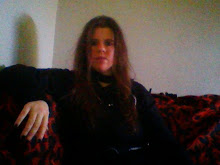It is a little like Proverbs or Ecclesiastes, and a little like Psalms also.
It starts out discussing the benefits of fearing God and doing right versus being terrible.
Parts of it seem very prophetic. It talks about how people who love and follow God will never really die. They go to peace when they die, death holds no terror for them, but it is a loss to die on bad terms with God. I think the Jews just believed the dead all went to Sheol. I am pretty sure that this concept about righteous souls going to peace and the evil people having a different afterlife was an unusual thing to say in Judaism - and that may be why the Tanakh does not include it. It goes very well with Christianity though. In this book's case, I strongly doubt that the Hebrew Bible not having it is a good reason to throw it out...
It has some things to say about idolatry, similar to what Isaiah had to say. It points out how stupid it is to ask for life from something that is dead, and to ask for strength from something that has no strength, and for guidance from something that can go nowhere - namely, an idol.
The last several chapters discuss God's works when getting the Israelites out of Egypt and into the promised land. This section is addressed to God, and reads like a worship song - a very long one! It mentions the serpent that people looked upon when bitten by snakes, and God would heal them from the snakebites. It says the statue of the snake did not do the healing, but God did the healing.
It does not cover all these things in chronological order, it seems to be like the writers flow of consciousness.
Now, for the controversial parts (for me): It says the offspring of adulterers will not live long, just like it says that adulterers will not. Parts of the Protestant Bible also say negative things about the children of immoral people. A passage in Isaiah calls people coming under judgment "the seed of the adulterer and the whore..." also some sections of the Psalms ask God to bring destruction on enemies, and talks about their kids. There are such things as generational curses, and God even mentioned that when He revealed himself to Moses, when Moses had asked to see God's glory. Therefore, I guess it is not grounds to doubt the inspiration of this book.
Obviously, the punishment going through generations is not God's favorite thing, by any means. That is why Jesus came, to break the curse off the sinner and their generations, and there are indeed curses like that to be broken. So, though I do not like it (clearly God feels the same way), but I think this is indeed sound doctrine, and can be verified by other scripture from several books that no Christian community has ever disputed, and which Jews also revere.
At the end, there is a part that says God can reverse the whole setup of creation, and make birds fly through water and fish swim through air if he should choose. The wording, in English at least, is confusing at that part, but I think he may be saying that this actually happened when the Red Sea was parted. I do not know af any other passage that says this was the case, but I can see it happening. The water might have been standing up pretty high, and birds could have run into it and been guided right through it and back to the air on the other side by God, The fish may well have fallen out of the water and been carried along in the wind to the other side where they were in water again, as safely as the children of Israel were being taken across the sea bed. Now that I have actually written all that out, it even seems likely. Therefore, I see no particular issue with this. It could also be interpreted as a poetic device, painting an image of the situation with more vivid, though perhaps imagined, detail.
Psalm 18 describes God riding on angels, which I think God is way bigger than and is far too big to ride them. That is a poetic device used in a worship song, as could be this imagery of swimming birds and flying fish in this worshipful poetry.
So with that, I find prophetic statements in here that are not part of the religion that the book was connected to, but are central to Christianity, such as the afterlife, and how friends of God never die, but pass from this life to new peace in a new life. That concept was alien to Jews, but as Christians, this is our Blessed hope. Therefore, I firmly believe this book is inspired, if no other disputed book is. I based my conclusion about the other ones on how I felt and thought about them and on whatever measure of discernment I have; I admit this is no more infallible than Martin Luther doing the same thing. This book is different though, this one is without a doubt sacred, because there is no other way a Jew in Greece could have said some of what was said in here.
Godspeed.
~Mother Star


No comments:
Post a Comment